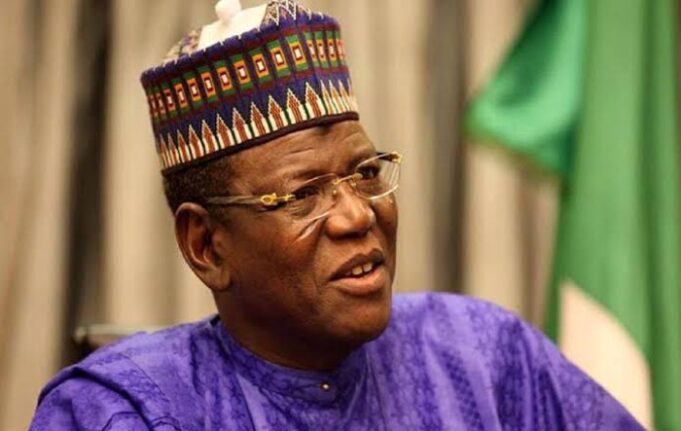The Economic and Financial Crimes Commission (EFCC) has asked the Supreme Court to set aside the July 25, 2023 discharge of former governor of Jigawa State, Sule Lamido and his son, Mustapha Lamido, by the Abuja Division of the Court of Appeal.
The former governor, his two sons, Aminu and Mustapha, Aminu Wada Abubakar, and their companies, Bamaina Holdings Ltd and Speeds International Ltd are standing trial before Justice Ijeoma Ojukwu of the Federal High Court, Abuja on a 37-count amended charge of money laundering to the tune of N1.35 billion fraud.
Lamido allegedly abused his position as governor between 2007 and 2015 and laundered several sums of money which he received as kickbacks from companies that were awarded contracts by Jigawa State Government under his leadership.
But Justice Ojukwu threw out the no-case submission, and upheld EFCC’s submission that Lamido and the other defendants had a case to answer and ordered them to open their defence. Dissatisfied, Lamido proceeded to the appellate court on appeal.
The appellate court had in a ruling on July 25, held that the no-case submission filed by the defendants was meritorious, struck out the charge and discharged the former governor and his son.
However, in a notice of appeal filed at the Supreme Court and dated July 31, 2023, the EFCC is asking the apex court to set aside the whole decision of the Court of Appeal and order a return of the case to the trial court “to continue and conclude same”, on the grounds that the appellate court erred in law when it discharged the respondents.
Among the four grounds of the appeal is the contention by the appellant that the Court of Appeal erred in law when it held that case was wrongly commenced in Abuja Division of the Federal High Court instead of Kano and proceeded to strike out the charge and discharge the appellants.
Contrary to the decision of the appellate court, the appellant contends that Section 98(1) of the ACJA, 2015 confers on the Chief Judge of the Federal High Court the power to transfer a case from one court to another where the transfer of the case will promote the ends of justice or will be in the interest of the public peace.
Court stops Otti’s panel on recovery of govt funds in Abia
The EFCC also assert that the appellate court’s overlook of the failure by the respondents to insert the names of other parties in their Notice of Appeal was grievous error, as Order 7 Rule 2(1) of the Court of Appeal Rules 2021 states that “all appeals shall be by way of rehearing and shall be brought by Notice of Appeal which shall set forth the grounds of appeal, the exact nature of the relief sought and the names and addresses of all parties affected by the appeal.
“The said unilateral and arbitrary exclusion of some of the parties in the Notice of Appeal by the respondents without the leave of the court is not a mere irregularity but a fundamental vice which rendered the Notice of Appeal incompetent and invalid”.
One of the charges against Sule Lamido and his co-defendants reads: “That you, Alhaji Sule Lamido (while being the Governor of Jigawa State, Nigeria), on or about March 2nd, 2012, within the jurisdiction of this Honourable Court in your account in the name Bamaina Holdings (also referred to as Bamaina Holding Limited) domiciled at Unity Bank Plc. Kano, converted the aggregate sum of N61,919,000.00 being the value of four Sterling Bank Plc Cheques nos. 04981304, 04981305, 04981307, 04981308, three Diamond Bank Plc Cheque nos. 32909551,32909548, 32909550 and four Bank PHB Plc Cheques nos. 24444376, 24444374, 24444375 and 24444372 paid by Dantata & Sawoe Construction Company Nigeria Limited which represented the proceeds of bribery and corruption to wit: using your position as a public officer for gratification by purportedly obtaining contracts for companies in which you have interest from Dantata & Sawoe Construction Company Nigeria Limited which was awarded contracts by Jigawa State Government with the aim of concealing their illicit origin and you thereby committed an offence contrary to Section 15(1) (a) of the Money Laundering (Prohibition) Act, 2011 and punishable under section 15(1) of the same Act”.
- Kaduna govt revokes sale of houses within legacy schools - April 22, 2025
- Nigeria Customs exceeds target, rakes in N1.75trn revenue in Q1’25 - April 22, 2025
- Popular Bishop pens emotional tribute to Chris Okafor on birthday - April 21, 2025








